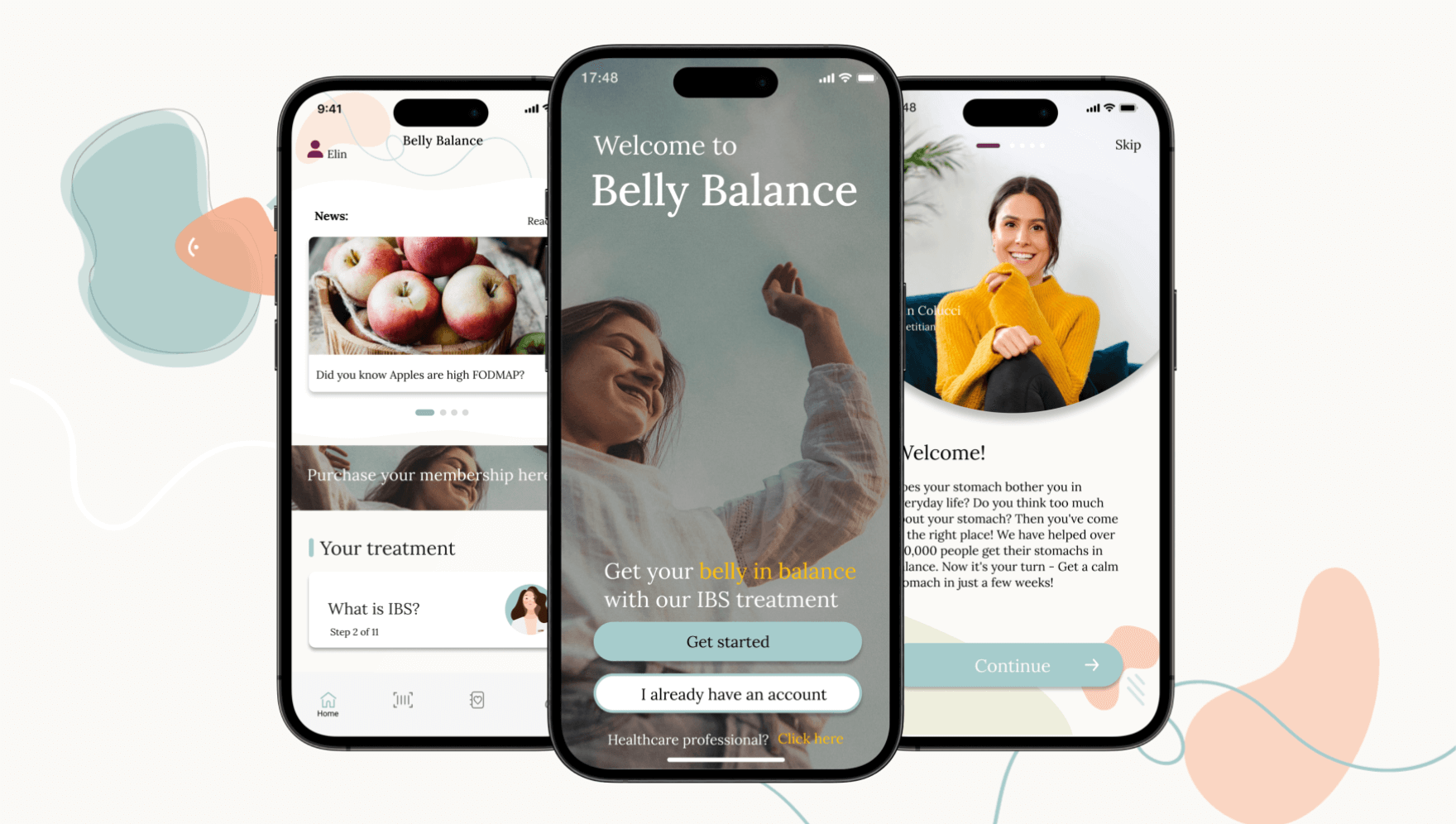
Iron supplements and IBS
January 27, 2023
Iron is a component of hemoglobin, which transports oxygen in the blood, and a deficiency in iron can lead to fatigue as the body cannot oxygenate itself properly. Recently, with the rise of vegetarianism, discussions about iron deficiency have become more prominent, and now one in three young women is at risk of iron deficiency. Iron supplements are known to affect the stomach, but there are options that are suitable even for those with IBS.
Iron is found in both hemoglobin, which transports oxygen in the blood, and in myoglobin, which transports oxygen in the muscles. Iron is also a part of certain enzymes. Iron deficiency anemia is common compared to other micronutrient deficiencies, and those affected are often teenagers, pregnant women, or women with heavy menstrual bleeding. The daily iron requirement for an adult woman is approximately 15 mg.
Iron absorption in the body
Iron absorption is relatively low compared to other nutrients. There are two types of iron: heme iron and non-heme iron. Heme iron is the most easily absorbed form and constitutes about half of the iron content in meat and blood products. Plant-based foods contain only non-heme iron, which is not absorbed by the body as efficiently and is more significantly affected by other substances.
For example, vitamin C, fish, and meat can improve the absorption of non-heme iron, while substances like polyphenols (found in tea, certain herbs, coffee, and wine) and phytic acid (found in the outer layers of cereal grains) can decrease absorption.
A person with iron deficiency absorbs more iron from food than someone with full iron stores. Iron availability is especially important during periods when iron stores are being built up, such as in infants.
How is iron status measured?
Iron levels are typically measured in the blood (Fe) or the iron stores in our reserves, referred to as serum iron (S-Fe) or serum ferritin.
Increased need of iron
The following groups often have an increased need for iron:
- Pregnant women
- Women with heavy menstrual bleeding
- Vegetarians and vegans
- Individuals with IBD (Crohn’s disease and ulcerative colitis)
- People with untreated or newly diagnosed celiac disease (gluten intolerance)
Supplements can affect the belly
Iron supplements have a tendency to negatively affect the gut, and it’s common to experience constipation. Some may react the opposite way with diarrhea, while others may experience stomach pain or nausea. Certain supplements are highly dosed, others must be taken on an empty stomach, or they may interact with medications. The iron content, the form, and when it should be taken also vary. In recent years, several new supplements have been developed that have less impact on the gut and work better for individuals with IBS and IBD.
Here are the most common supplements and their characteristics:
Niferex – Available in capsule or liquid form. High-dose heme iron (100 mg). Should not be taken if you have IBS/IBD, may cause side effects such as nausea, constipation, or diarrhea. Should not be taken simultaneously with certain medications like antibiotics, Levaxin, or antacids. Should not be taken with coffee or milk. Can be taken during pregnancy and breastfeeding. Not vegan.
Duroferon – Available in tablet form. High-dose heme iron (100 mg). Should not be taken if you have IBS/IBD, may cause side effects such as nausea, constipation, or diarrhea. Should not be taken simultaneously with certain medications like antibiotics, Levaxin, or antacids. Should not be taken with coffee or milk. Can be taken during pregnancy and breastfeeding. Not vegan.
Hemofer – Contains a combination of heme and non-heme iron. Also contains vitamin C for better iron absorption. Dose approx. 27 mg. Can be taken during pregnancy and breastfeeding. Does not cause gastrointestinal side effects. Suitable for IBS and IBD, but contains polyfructose, so it’s not low-FODMAP. Not vegan.
Compiron – A liquid iron supplement with 25 mg of iron per 5 ml. Compiron has a patented formulation of iron that does not irritate the stomach. Can be taken with or without food at any time of the day. Not affected by dairy products. Does not stain teeth. Vegan. Low-FODMAP.
Blueiron – A liquid iron supplement with folic acid, vitamins, and antioxidants from blueberries. Blueiron contains encapsulated trivalent iron that is released in the digestive system, which prevents constipation or nausea. Can be taken with or without food at any time of the day. Not affected by dairy products. Vegan. Low-FODMAP.
Femineral – A liquid iron and mineral supplement with a blend of minerals, trace elements, vitamins, 14 Swedish health herbs, and adaptogen-rich plants such as rhodiola and Siberian ginseng. Made in Sweden and evaluated in a clinical study with good results. Vegan. Not low-FODMAP.
Blutsaft – A liquid vegetarian dietary supplement containing vitamins and iron. Easily absorbed by the body and gentle on the stomach. Suitable for breastfeeding, pregnant women, vegetarians, or others in need of extra iron. Blutsaft uses an organic and easily absorbed type of iron that effectively replenishes iron stores. Not low-FODMAP.
Reg. Dietitian, Belly Balance
Belly Balance digital treatment
Read more about

IBS - What is it?
Bloated , constipated or having a gassy stomach? IBS or Irritable Bowel Syndrome is a functional gastrointestinal disorder, meaning no physical issues can be found in the stomach or intestines; they just don’t function quite as they should.

How the app works
Download the app and become part of our community. We assist you in achieving a calm and happy stomach through treatment and tools available directly in the app.

About FODMAP
By learning which foods upset your stomach, you can make conscious choices and get quick symptom relief. With the low FODMAP diet, you receive structured assistance in understanding which foods your body tolerates better than others. No more guessing and pondering – you get the answer straight away!

